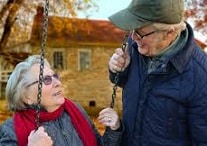The first necessary step that must be taken in order to know the meaning of the term gerontology is to discover its etymological origin. In this case, we can state that it is a neologism that derives from Greek, since it was formed from the sum of several lexical components of said language:
-The noun “geron, gerontos”, which can be translated as “old man”.
-“Logos”, which is synonymous with “word” or “treaty”.
-The suffix “-ia”, which is used to indicate “quality”.
Likewise, it is interesting to know that this neologism was shaped by the Russian biologist Ilya Ilyich Metchnikov (1845 – 1916), who won the Nobel Prize in Physiology and Medicine in 1908. In his work “The Nature of Man: Studies in Optimistic Philosophy” defined gerontology as “the scientific study of old age.”
The science whose object of study is the phenomena linked to old age is known as gerontology . In this way, it is oriented towards the analysis of old age in its different facets, focusing on social, psychological, cultural, economic and other issues.
 A person is old when they are very old. Although there is no precise definition of the term, old age or old age can be associated with third age , which begins when over 65 years of age . Gerontology, therefore, usually focuses on men and women who have already lived more than six and a half decades.
A person is old when they are very old. Although there is no precise definition of the term, old age or old age can be associated with third age , which begins when over 65 years of age . Gerontology, therefore, usually focuses on men and women who have already lived more than six and a half decades.
The elderly have specific needs that must be addressed by gerontology experts, either through direct professional intervention or through specific institutions. Gerontology specializes in studying the aging process of individuals and societies .
While gerontology focuses on the various aspects of aging, geriatrics is the specialization of medicine that is responsible for the prevention, treatment and cure of diseases of old age.
In recent decades, the importance of gerontology has grown as humans are living longer and, therefore, there are a greater number of elderly people worldwide. Simultaneously, social and cultural changes occurred that meant that old people were no longer valued for their experience and wisdom, but in many cases they began to be considered burdens. For this reason, sometimes they lose family ties and subsist almost in isolation, a fact that gerontology tries to reverse.
Increasingly, different countries are concerned about the elderly population. A good example of this is that organizations, plans and projects that focus on it are launched. Thus, for example, we can establish that in Spain there is the Spanish Society of Geriatrics and Gerontology (SEGG), which already has seventy years of history.
Doctors, nurses, psychologists, social workers, geographers, physiotherapists or educators are some of the partners of this society whose objectives are to promote knowledge of the aging process of human beings or to promote training and care systems in the field of health. gerontology and geriatrics, among others.
